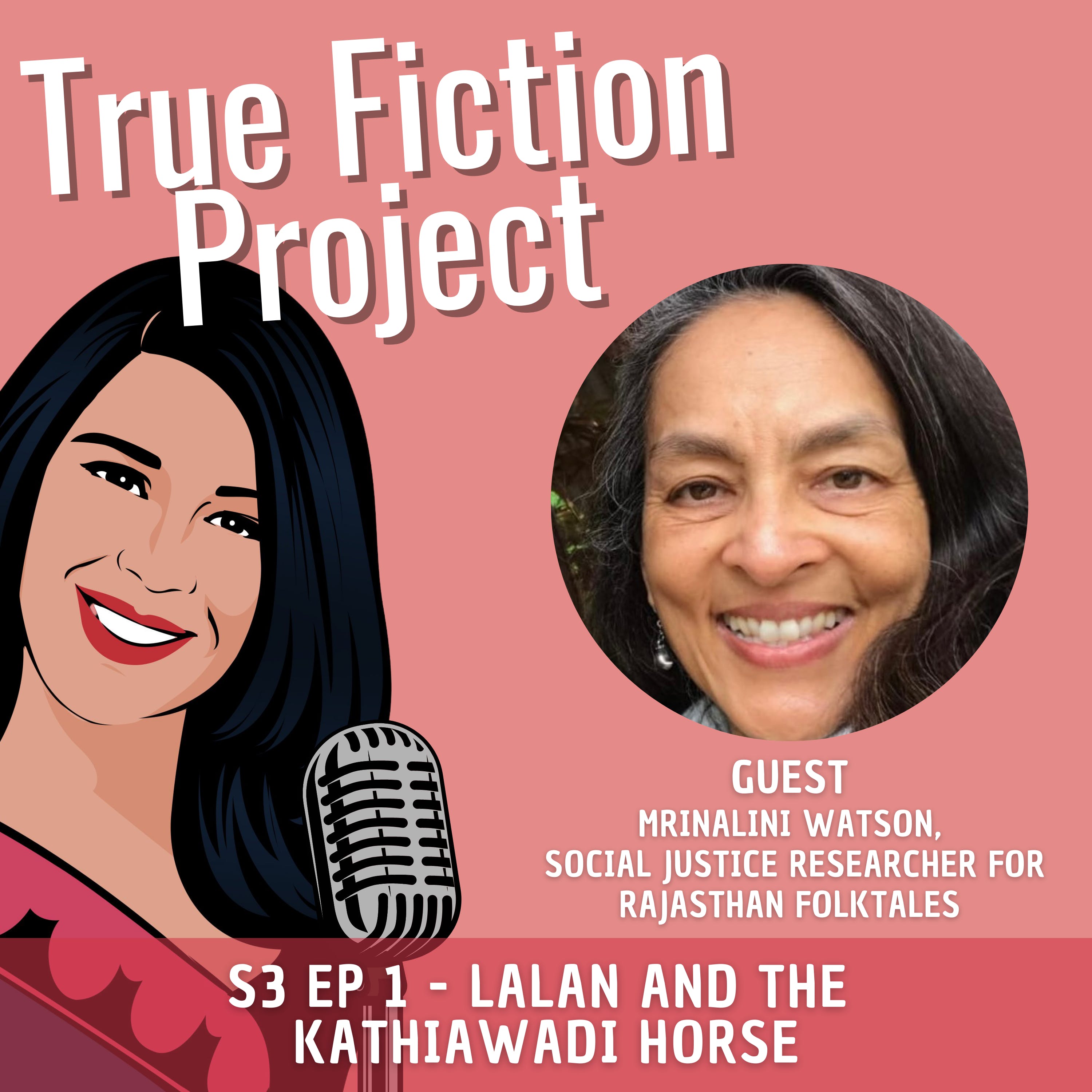S3 Ep 1 - Lalan & the Kathiawadi Horse

Welcome to season 3 of the True Fiction Project Podcast!\xa0I was delighted to speak with Mrinalini Watson, a social justice researcher of Rajasthan folktales. Mrinalini discusses how the caste system works in Rajasthan and what social injustices she\u2019s experienced while visiting. She spoke about how stories are shared throughout the villages and how folktales are created. Mrinalini then shares a folktale of Lalan and the Kathiawadi Horse, which tells the story of a woman who fulfills her dying father's wish when her brothers refused. At the end of the episode, we discuss how fiction stories come alive from actual events. Tune in to hear more about how folktales impact the world, the similarities between stories in different cultures, and how they highlight issues that we all share.\xa0\xa0\xa0\xa0\xa0\n\nIN THIS EPISODE:\n\n[2:18] What does it mean to collect folktales, and how did the folktales come to be?\xa0\n\n[6:44] Were the social injustices relevant when Mrinalini visited Rajasthan?\xa0\n\n[9:20] Why do women have to cover their faces and take off their shoes? Why would they get in trouble if they didn't?\xa0\n\n[11:48] What is the caste system, and how does it work?\xa0\n\n[17:43] Mrinalini Watson shares a folktale of Lalan and the Kathiawadi Horse, about a dying father's wish to give a horse to each person who had supported him as king and how his daughter made it happen when his sons wouldn't.\xa0\n\n[23:37] How much of this story is true or steeped in mythology?\xa0\n\n\nKEY TAKEAWAYS:\n\nThe folktales were created by patrons/genealogists who would come in for special occasions like birth or wedding and were called to narrate a story. Each person in the family has their own storyteller, which resulted in individual collections of stories.\xa0\n\nThe caste system is very pronounced. It takes greater prominence over the economic divide. You have the upper class, who can be poor people, but they can still have a higher status than wealthier scheduled castes.\xa0\n\nFolktales are a way for people to deal with their problems. We see similar stories all across different cultures where the same story would not have been shared before. People around the world have similar problems; they're using similar strategies to resolve these problems through storytelling. We aren\u2019t so special and unique afterall.\xa0\n\n\nFiction Credits:\nA folktale read by: Mrinalini Watson\xa0\n\nBIO:\nMrinalini Watson is a student \u2013 with undergraduate degrees in nutrition and accounting. She has graduate degrees in tax, linguistics, and literary translation and is a retired CPA. Mrinalini is a state department-administered Critical Language (CGIU) conference attendee and award recipient.\xa0\n\nCo-founder of enLighten two emPower, an NGO empowering girls and women in remote areas of rural Rajasthan. Recipient of two Fulbright fellowships for research on social justice in Rajasthani folktales that I will be collecting and translating. Currently learning the Bengali language and culture and studying anthropology.\n\nAn athlete \u2013 from high school (track and field, long-distance races, gymnastics, swimming, and basketball) to the present (summited Mt. Whitney 5 times; 2 L A marathons; and a few half marathons)\n\nSupport this podcast at \u2014 https://redcircle.com/true-fiction-project/donations\n\nAdvertising Inquiries: https://redcircle.com/brands\n\nPrivacy & Opt-Out: https://redcircle.com/privacy